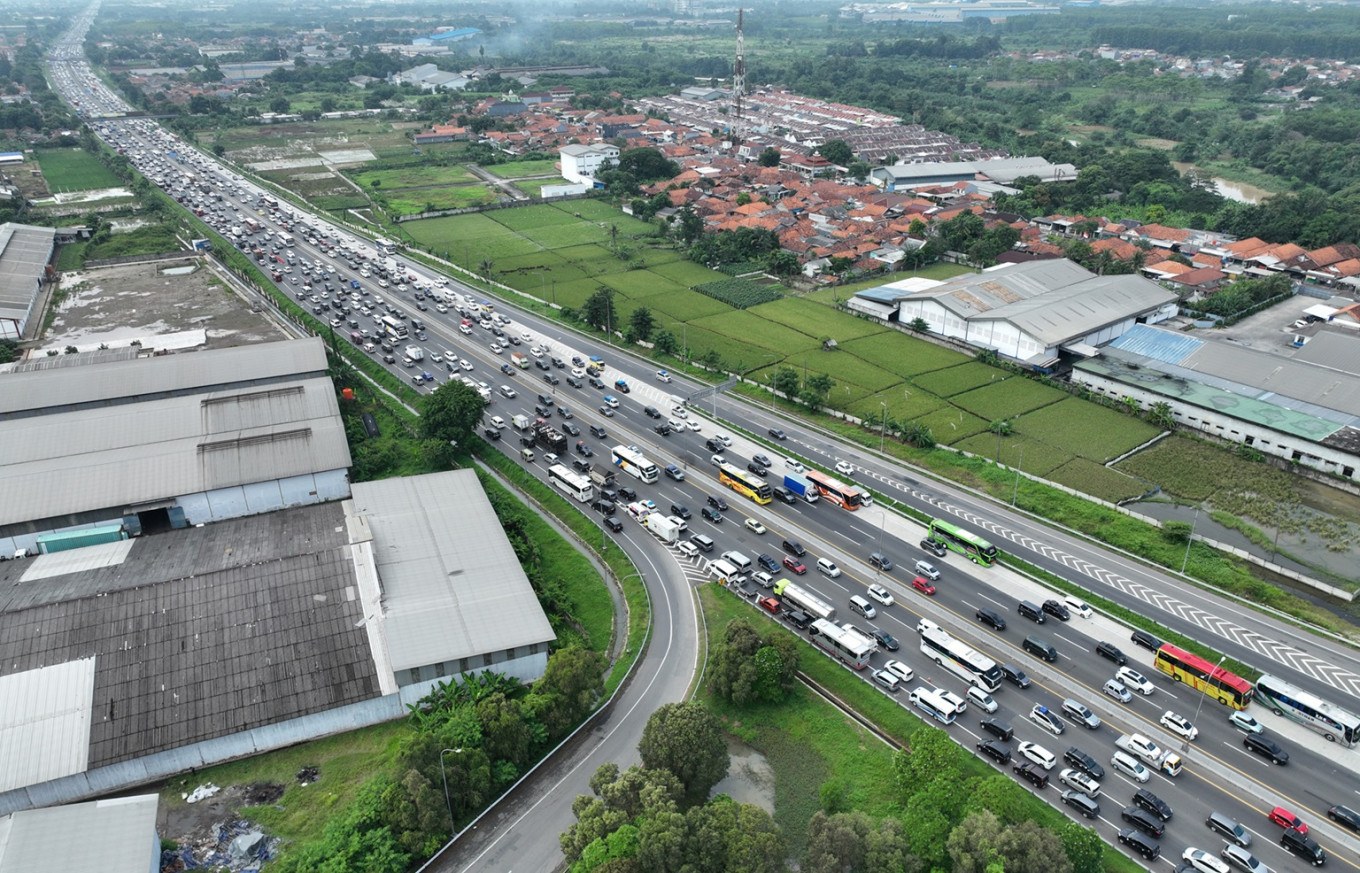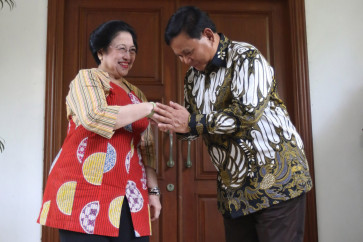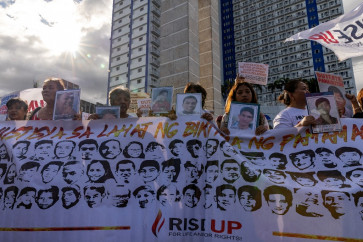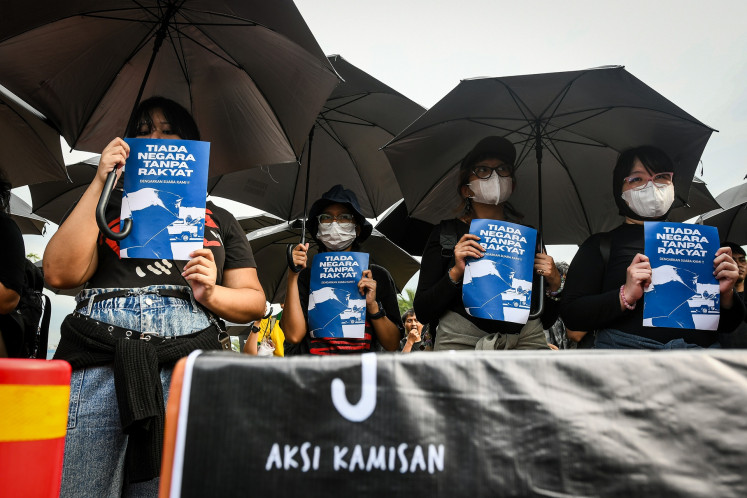Lebaran and the human right to pursue happiness
The spirit of unity and forgiveness at the heart of Lebaran offers an opportunity for the Indonesian government and citizens to mend their ties toward better mutual understanding in our shared pursuit of happiness.
Change text size
Gift Premium Articles
to Anyone
 Vehicles heading to Jakarta during ‘mudik’ (exodus) crawl on April 15, 2024, along a section of the Jakarta-Cikampek Toll Road in Karawang, West Java. (Antara/Akbar Nugroho Gumay)
Vehicles heading to Jakarta during ‘mudik’ (exodus) crawl on April 15, 2024, along a section of the Jakarta-Cikampek Toll Road in Karawang, West Java. (Antara/Akbar Nugroho Gumay)
L
ebaran, also called Idul Fitri, will be celebrated on March 31 and April 1 this year. After 30 days of fasting, millions will flock to their hometowns to celebrate the holiday and pursue happiness by visiting their parents, relatives and friends.
Amid the economic slowdown, the number of revelers traveling back home this holiday season is projected to decline to 146 million from 193 million last year. The sheer scale of the Idul Fitri exodus, locally known as mudik, shows a keen desire to celebrate the Islamic holiday in Indonesia, the largest Muslim-majority country in the world.
Indeed, Idul Fitri brings an atmosphere of happiness and expressions of gratitude for the blessings of God, and reflects the old Javanese saying, “Mangan ora mangan waton kumpul” (Eating or not does not matter, what matters is gathering together).
Pursuing happiness is a human right that is guaranteed in the Universal Declaration of Human Rights (UDHR). The right to pursue and obtain happiness is a civil right that is inherent in every person, regardless of their background, social and economic status, race, ethnicity or religion.
It comes as no surprise that in Indonesia, Idul Fitri does not belong only to Muslims, and is also celebrated by people of other faiths and beliefs. It erodes geocentricism, group interests and differences into shared happiness.
Celebrating Lebaran is also a manifestation of the right to freedom of religion and belief, which is protected by the UDHR, the 1945 Constitution and prevailing laws and regulations. The state must respect this right. Rather than taking measures that can lead to infringement of this right, the Indonesian state does its best to ensure the safety, comfort and ease of mudik by deploying traffic police and improving infrastructure, among other efforts.
Lebaran derives from the Javanese word "lebar", which means “end” or “completion”. Not only does it refer to the conclusion of the fasting month, but it also means closure to begin a new chapter through reconciliation and strengthening friendship.


















